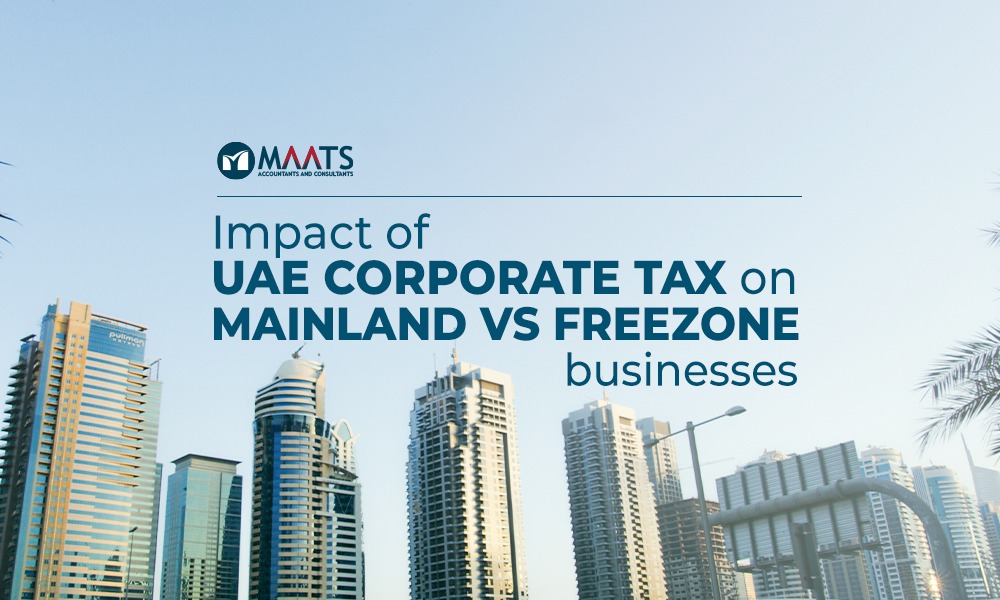When Do Natural Persons Need to Register for Corporate Tax in the UAE?
The launch of the UAE’s Corporate Tax (CT) regime in June 2023 has raised important questions for individuals about their tax obligations. While it is clear that corporate entities are subject to the tax, natural persons—such as freelancers, sole proprietors, and investors—may also be required to register, depending on their income and activities. This article explains the specific conditions under which a natural person must register for Corporate Tax in the UAE, with a focus on key income thresholds, exemptions, and compliance obligations. Who Is Considered a Taxable Natural Person? According to the UAE Corporate Tax Law, a natural person (i.e., an individual) may be subject to Corporate Tax if they: Exempt Income for Natural Persons Includes: When Does a Natural Person Need to Register? A natural person is required to register for Corporate Tax in the UAE only if their total annual business turnover exceeds AED 1 million within a calendar year. This threshold applies exclusively to income earned from business or commercial activities, not from exempt sources such as salaries or personal investments. For example, freelancers and sole proprietors who generate over AED 1 million annually through services like consulting, content creation, or design must register for Corporate Tax. Similarly, licensed business owners—such as individuals operating a retail shop, café, or online business—are also required to register if their turnover surpasses the threshold. In cases where an individual has mixed sources of income, such as a combination of a salaried job and freelance work, only the income from the business activity is considered when determining whether registration is necessary. If the business portion alone exceeds AED 1 million in a year, the individual must register, even though their salary remains exempt from Corporate Tax. When Is Registration Not Required? Registration for Corporate Tax is not required for natural persons in several common situations. Salaried employees are fully exempt, as employment income does not fall within the scope of Corporate Tax. Likewise, individuals who earn income from passive real estate investments—such as renting or selling property without holding a business license—are not required to register. Additionally, small-scale traders or freelancers whose total annual business income remains below the AED 1 million threshold are exempt from registration requirements. Special Consideration: Real Estate Income Real estate income is generally exempt from Corporate Tax for natural persons when it arises from passive activities, such as renting out property for personal investment purposes. This means that individuals who own and lease out residential or commercial properties without engaging in a licensed real estate business are not required to register for Corporate Tax, even if their rental income exceeds AED 1 million annually. However, the exemption does not apply if the individual holds a business license related to real estate—such as a broker, developer, or property manager—or if the income stems from a commercial real estate activity. In such cases, the person is considered to be conducting a business, which brings the income within the scope of Corporate Tax. For example, renting out a personal villa would typically remain tax-exempt, unless it forms part of a licensed real estate business. How to Register for Corporate Tax If you meet the criteria, registration should be completed through the Federal Tax Authority (FTA)’s EmaraTax portal. Steps include: Important: Registration must be completed before the end of the relevant tax period to avoid penalties. Do You Need to Register? Natural persons are not required to register for Corporate Tax if their income comes solely from wages, passive investments, or exempt real estate activities. However, registration becomes mandatory if an individual earns business income exceeding AED 1 million per year, excluding any exempt income categories. If there is any uncertainty about your tax status or whether registration is necessary, it is strongly recommended to consult a qualified tax advisor to ensure compliance with UAE tax laws. Need Help Navigating Corporate Tax? Whether you’re a freelancer, investor, or property owner in the UAE, Maats Auditors & Consultants can help you understand your obligations and ensure full compliance with the Corporate Tax law. Contact us today for expert guidance on registration, filing, and staying tax-efficient in the UAE.





